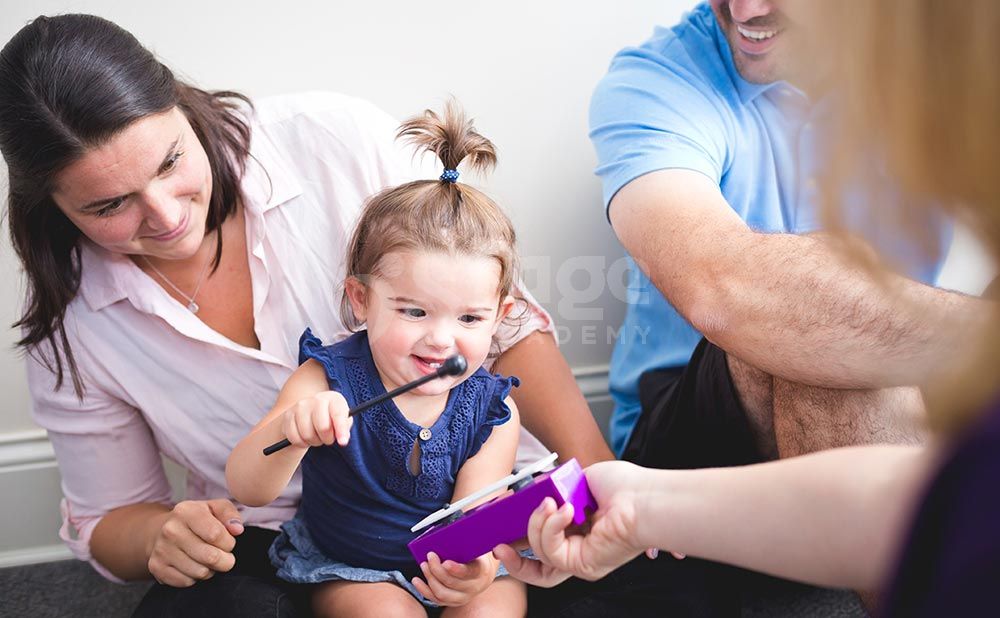September 30th, 2017

Research has shown that babies, from developing fetus to toddler, respond instinctively to music and benefit from it. They are born with a musical readiness that includes a basic sense of timing, beat and rhythm. According to one report, “Babies are born to dance!” As they naturally respond to music, infants and toddlers who are exposed regularly to music are shown to concentrate and learn more quickly. They demonstrate advanced verbal skills, increased vocabulary and better coordination than those children without music. Research has also shown that music for very young children facilitates the growth of neural connections, enhancing higher brain functions that enable a child to reason in many subjects other than music.
The impulse to move, speak, sing and play rhythmically is a natural and vital part of being human. Early exposure to rhymes, tickle games, songs and instruments reinforces core first-year developmental milestones such as eye contact, object permanence and bonding with parent or caregiver. Through music and repetition of music and activities, babies become aware of their environment. This visual and aural stimulation aid in language emergence and the ability of the eyes to focus. Floor activities and group dances help to naturally develop babies core strength and social skills and stimulates the vestibular system.
Making music by singing, moving and instrument playing results in the child becoming a better musician, one who will be more successful in future musical pursuits. We also know, that:
-
The richer the music environment a child inhabits, the richer the brain network.
-
Music, at a very young age, has a dramatic impact on a child’s language and vocabulary development.
-
Timing activities develop motor skills and coordination.
-
Listening, comparing, and responding to a variety of music develops thinking skills. Songs, rhymes, and finger games strengthen memory.
-
Repeating patterns and counting beats develop vocabulary and sequencing skills.
-
Participating in group dances and musical games builds social skills and enhances self esteem
And the Experts Say:
“Music is a powerful sources of interaction that develops the baby and tot emotionally, cognitively, socially and physically. Positive and supportive interaction contributes to the attachment and bonding we want between parents and children. Research shows the early years are the most significant time in a human life.” — Donna Brink Fox, PhD, Eastman School of Music
“Early wiring” of the brain shapes the way a child thinks, learns, and behaves the rest of his life.
“It is this: Parents can make a significant impact upon the permanent musical impressions and development of their children. They need only express pleasure and communication when music is being performed; they need only to join the dance, sing the song, and play along. When the real joy and pleasure is shared with Mom and Dad, that musical experience becomes extremely memorable and associative.” — Cecelia Riddell, PhD Emeritus, California State University, DH
“Babies Are Born to Dance, Research Show” — Science Daily, March 16, 2010
Researchers have discovered that infants respond to the rhythm and tempo of music and find it more engaging than speech. Research shows babies may be born with a predisposition to move rhythmically in response to music. “We found that the more the children were able to synchronize their movements with the music, the more they smiled.” Music Rhapsody
